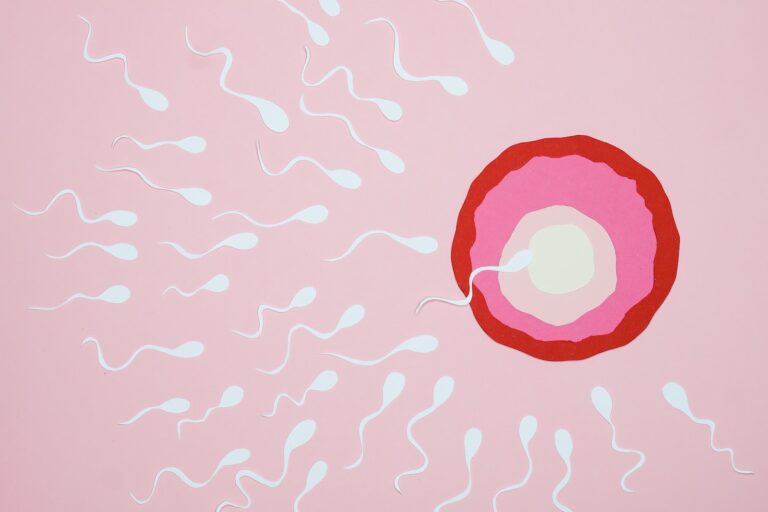A woman has the best chance of conceiving each month during her fertile window. That’s the five days leading up to and including ovulation.
During this time, you may experience “wet days,” or cervical mucus that is stretchy and looks like egg whites. This is a sign that your body is ready to conceive.
Sex After Ovulation
The likelihood of pregnancy is highest on the day you ovulate, and in the few days leading up to that. The ovulation window usually lasts for five to nine days, during the luteal phase. During this time, sperm and the released egg may start to fuse together in the uterus, or implant. Having sex in this window is important for couples who are trying to conceive, because it’s when you have the most chance of conception.
But can you get pregnant if you have sex after ovulation? The short answer is yes, but it’s not as likely. The ovulation window closes about 24 hours after the release of an egg, because the released egg can only live for up to that amount of time before it starts to disintegrate. Having sex after this point will decrease the chances of getting pregnant, because sperm won’t be able to fertilize the egg.
However, some research has shown that the act of sexual activity primes a woman’s body for pregnancy. Having regular sex throughout the month (not just around ovulation) can help you to get pregnant, because it encourages your body to accept the fertilized egg as a normal part of your reproductive system.
You can use ovulation trackers, such as basal body temperature charts and cervical mucus tracking, to help you identify the day you’re most receptive. This information, combined with your knowledge of your partner’s ovulation habits and timing, can help you plan when to have sex and improve your odds of conceiving. But remember, it’s still important to use protection at all times, because unprotected sex can increase your risk of pregnancy and sexually transmitted infections, such as HIV. The risk is particularly high if you have sex with multiple partners, because HIV can be transmitted through vaginal fluids and blood.
Ovulation Predictor Kits
Using an ovulation predictor kit can help you and your partner time baby-making sex during the most fertile window of the month. These kits monitor your body’s levels of luteinizing hormone (LH), which spikes just prior to ovulation. The kits detect the LH surge by looking for a dark line in your urine, allowing you to pinpoint the day that you’re most likely to ovulate. Then, you can plan to have sex that day or the next to maximize your odds of conception.
Ovulation predictor kits come in a variety of forms, including urine-based tests and digital monitors. However, all are designed to do the same thing: detect a rise in LH to predict your ovulation date. Most ovulation predictor kits are available at drugstores and online, and they can be less expensive than fertility monitoring methods like charting your basal body temperature or checking cervical mucus.
The most popular ovulation test kits include strips that you place in your urine to measure the levels of LH. They often have a clear display that shows you the results, with “smiley face” icons to indicate high fertility leading up to ovulation. However, they’re not as accurate as a doctor’s office visit or ultrasound to determine when you’re ovulating.
For more accuracy, consider opting for a kit that also includes a digital monitor to track your LH level. These monitors connect to your smartphone and offer more precise readings than standard ovulation test strips, giving you greater clarity about your fertility status. Some monitors even let you know if you’re about to ovulate by displaying two dark lines, which is the same as the results on a traditional ovulation test strip.
Talk to your OB/GYN about the pros and cons of ovulation testing. They can tell you whether the kit is right for your needs and help you decide how best to use it if you have irregular periods or other issues that could affect your fertility.
Sex Before Ovulation
Women often have sex on the days leading up to ovulation, or their “fertile window.” This is because an egg can only be fertilized within 24 hours of being released from the ovary. Having sex during this time can help ensure that live sperm will be present in the fallopian tubes to greet a newly released egg and increase the chances of pregnancy.
However, many couples aren’t having sex at the right time. The most common reason for this is that they’re not calculating their ovulation cycle correctly, meaning they’re bypassing their most fertile period every month. Luckily, there are ways to figure out exactly when you’re ovulating. One method involves tracking your body temperature throughout the day to see when it starts to rise. Another is to use an ovulation predictor kit to detect LH, a hormone that triggers ovulation.
Aside from these methods, there are other things you can do to help optimize your fertility. You can eat healthy, exercise regularly, and even get acupuncture. But the most important thing you can do to boost your chances of getting pregnant is to have sex regularly.
When you’re trying to conceive, it’s best to have sex at least twice a day during the three days before you ovulate. This is because the hormones that control your menstrual cycle also affect your cervical mucus. During the few days before you ovulate, your mucus becomes thicker and more slippery. It can even resemble the texture of egg whites. This makes it easier for sperm to travel through the fallopian tubes and meet the egg. It’s also a good idea to use lubricants that are safe for sperm, such as ones labeled as sperm-friendly.
See Also:



